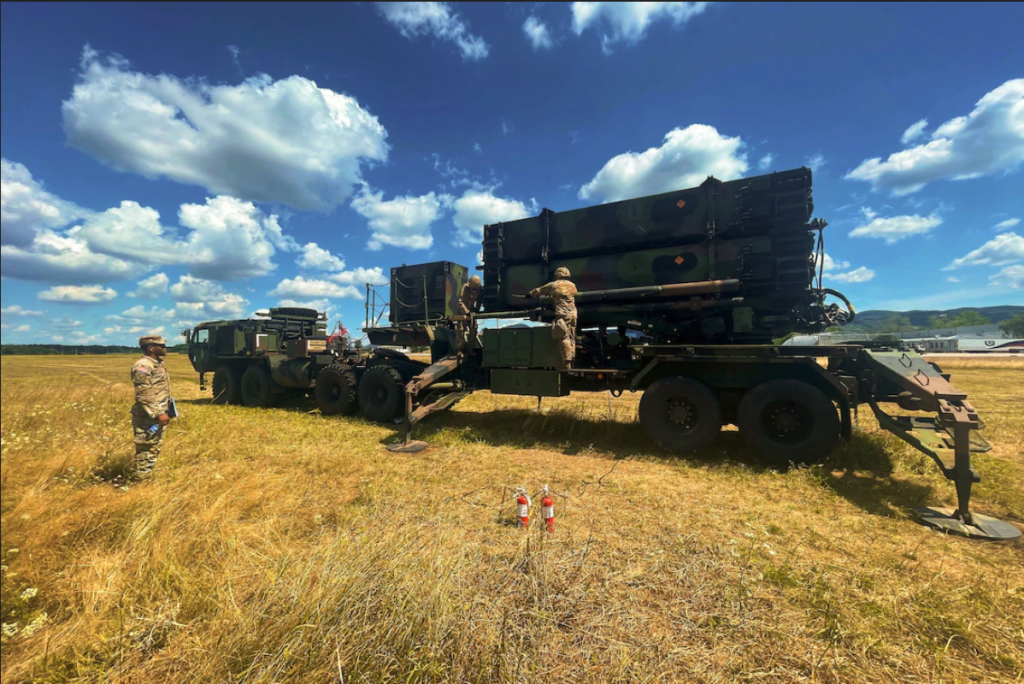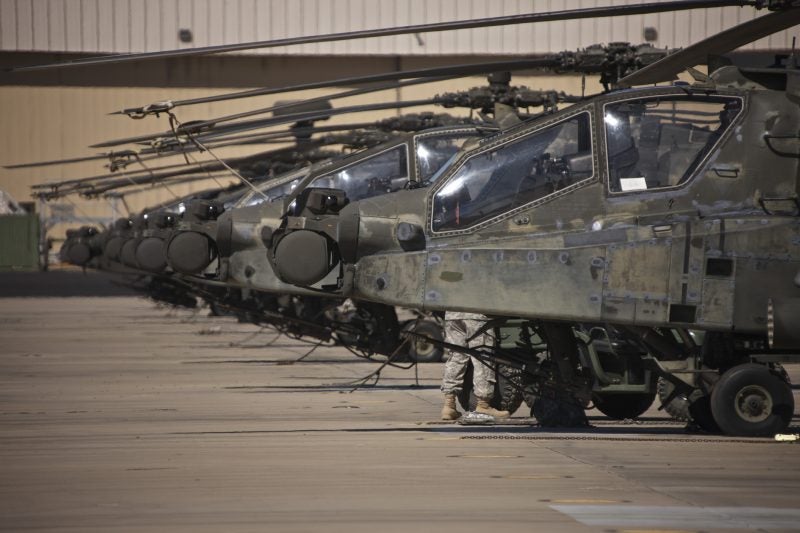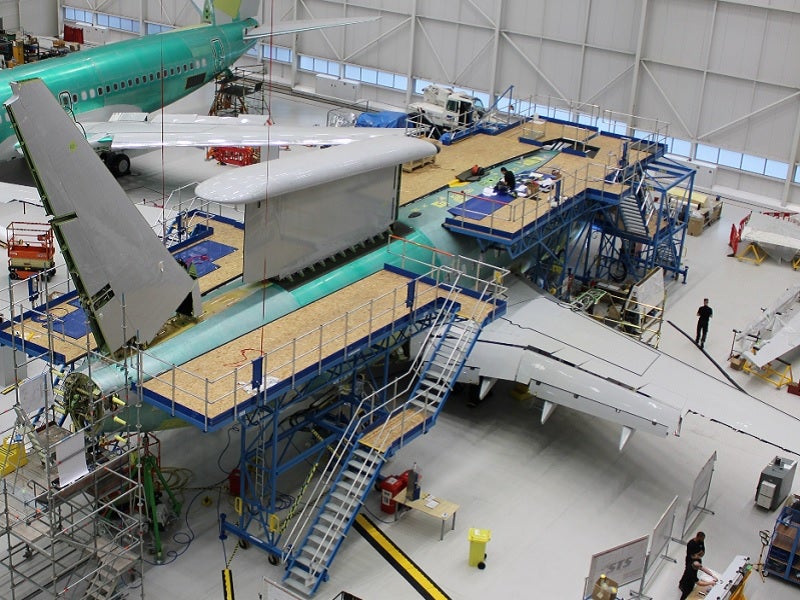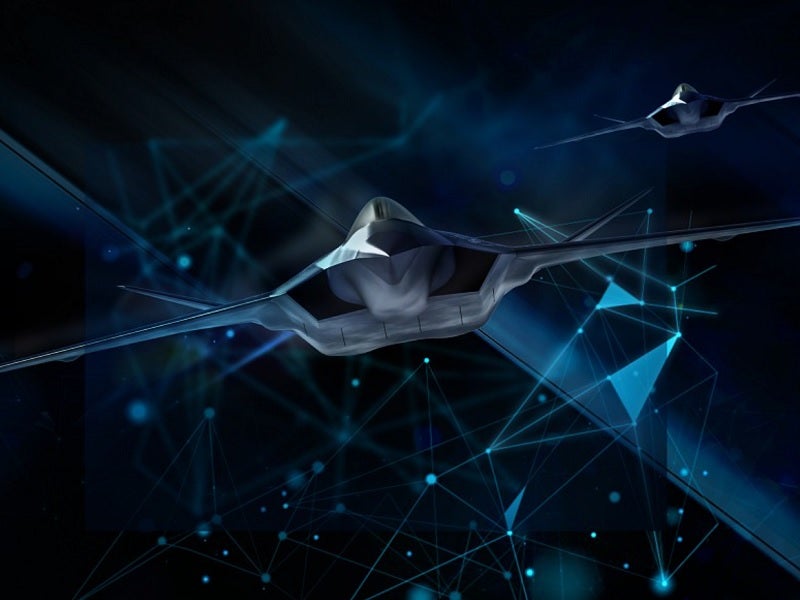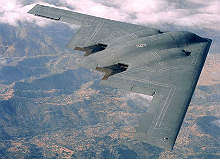
B-2 Spirit Stealth Bomber
Primarily operated by the US Air Force, the B-2 Spirit is a long-range, low-observable, strategic, heavy stealth bomber manufactured by Northrop Grumman. The aircraft can penetrate sophisticated and dense air-defence systems.
The B-2 made its first flight in July 1989 and was manufactured at Northrop Grumman’s facilities in Pico Rivera and Palmdale in California. A total of 20 B-2s are operational at the Whiteman Air Force Base in Missouri. The B-2s were deployed during Operation Iraqi Freedom in 2003 and in Operation Odyssey Dawn, Libya, in 2011.
The multirole bomber features a generic weapons interface system and can carry 40,000lb of weapons payload. It can fly at an altitude of 50,000ft with a range of more than 6,000nm unrefueled and 10,000nm with one refuelling. It can carry conventional and nuclear weapons, precision-guided munitions, gravity bombs and maritime weapons. It can also carry AGM-129 advanced cruise missile, about 80 joint direct attack munitions (JDAMs) and two Boeing massive ordnance penetrator weapons.
Related Suppliers: Aircraft, Upgrades and Completions
Tupolev Tu-160 / Blackjack
The Tu-160 supersonic strategic bomber and missile carrier (Nato reporting name: Blackjack) manufactured by Tupolev and Kazan Aircraft Production Association is designed to deliver nuclear and conventional weapons. It is primarily operated by Russian Air Force and is available in eight variants.
The Tu-160 aircraft flew for the first time in December 1981 and entered service in April 1987. It can survive in all-weather, day-and-night conditions and can operate at all geographical latitudes.
The aircraft can carry free-fall bombs up to 40t and has two weapon bays, which can hold 12 Kh-55MS missiles and up to 24 Kh-15P short-range nuclear missiles. It has in-flight refuelling system and is powered by four Kuznetsov NK-32 turbofan engines. The maximum and cruise speeds of the aircraft are 2,220km/h and 960km/h respectively, and the range is 12,300km.
B-1B Lancer
B-1B Lancer is a long-range, strategic bomber manufactured by Rockwell International and is primarily used by the US Air Force. The aircraft was based on B-1A bomber aircraft and has reduced radar signature compared to its base model. The B-1B performed first flight in October 1984.
The B1-B was used for conventional-weapons missions in the 1990s. Six B-1Bs were deployed in Royal Air Force Base Fairford, England, in 1999 to provide assistance for Operation Allied Force in Kosovo. The aircraft carries a crew of four members and has the largest internal payload bay of any bomber.
It is powered by four General Electric F101-GE-102 turbofan engines and can load 84 Mark 82 conventional 500lb bombs, or 30 CBU-87/89/97, or 24 JDAMS. It can also carry an AGM-69A nuclear short-range attack missile. The aircraft can fly at a speed of Mach 1.2 at sea level and can reach altitudes of more than 30,000ft.
Related Suppliers: Aircraft Maintenance, Spares and Ground Support
B-52 Stratofortress
The B-52 Stratofortress is a long-range strategic heavy bomber manufactured by Boeing and operated by the US Air Force and Nasa. It is the longest serving combat aircraft in the US military and supports air interdiction, maritime and offensive counter-air operations. It was used in missions such as Operation Iraqi Freedom.
The Stratofortress made first flight in April 1952 and entered into service in 1954. Boeing has built a total of 744 B-52s in 12 variants. The maximum take-off weight of the aircraft is 488,000lbs.
The new Stratofortress variant B-52H can carry free-fall bombs, cluster bombs, precision guided missiles and joint direct attack munitions, and has a mixed payload capacity of 70,000lbs. It can fly at speeds up to 650mph (1,046kmph) to an unrefueled range of more than 10,000 miles and altitudes of more than 50,000ft. It is manned by five crew members and powered by eight Pratt & Whitney TF-33 turbofan engines.
Tupolev Tu-22M
The Tu-22M bomber (Nato reporting name of Backfire) is a supersonic, long-range, strategic and maritime bomber manufactured by Tupolev based on the design of the Tu-22 aircraft. The Tu-22M is currently operated by the Russian Air Force and Russian Naval Aviation. It was also operated in India, Ukraine and the Soviet Union.
The Tu-22M bomber performed maiden flight in 1969 and entered into service in 1972. It was first deployed in Afghanistan from 1987 to 1989, and since then a total of 497 Tu-22M bombers were built. The aircraft carries a crew of four and can accomplish a maximum speed of 2,000km/h and maximum tactical range of 2,200km.
It can load Kh-22 stand-off missiles, six Kh-15 nuclear or Kh-15P anti-radar missiles, Kh-31A/P and Kh-35 air-to-surface missiles, and about three tonnes of free-fall bombs. The maximum take-off weight of the bomber is 124t.
Related Suppliers: Landing Aids, Guidance and Lighting
Tupolev Tu-95 (Bear)
Tupolev Tu-95/Tu-95MS (Nato reporting name: Bear) is a turboprop-powered strategic bomber and missile carrier developed by Tupolev. The Tu-95 prototype made its first flight in November 1952 and the bomber entered into service with the Soviet Union’s DA (Long-Range Aviation) in 1957.
The Tu-95 can carry 23mm cannons and up to 15,000kg of combat load including air-to-surface missiles and bombs. The Russian Air Force currently operates a fleet of ??-95?? (Tu-95MS), a bomber/missile carrier version of Tu-95.
The NK-12M turboprop engines, driving four AB-60K coaxial propellers, make Tu-95 the only operational strategic bomber equipped with a turboprop power-plant. The aircraft can attain a maximum speed of 830km/h and a range of 15,000km.
Xian H-6
The Xian H-6 (Hong-6) is a strategic bomber in service with the Chinese People’s Liberation Army Air Force (PLAAF) and is a Chinese variant of the Tupolev Tu-16 bomber. The PLA Navy also operates missile carrier versions of the H-6.
The first Chinese-built H-6 bomber entered into service with the PLAAF in 1969. The H-6’s internal weapon bay can house up to 9,000kg of 250kg-3,000kg-class general-purpose bombs or a single nuclear bomb. The bomber is also armed with two 23mm cannons and anti-ship/air-to-surface missiles.
The aircraft has a cruise speed of 796 km/h (Mach 0.75), and can travel to a range of approximately 6,000km. The PLAAF received an upgraded H-6 version named H-6K in mid-2013. The advanced versions of H-6 are equipped with new turbofan engines.
Sukhoi Su-24M (Fencer-D)
The Su-24M (Nato reporting name: Fencer-D) is the modern frontline bomber indigenously-produced by Sukhoi Company (JSC) in Russia. It is designed for bombardment of ground and naval surface targets through bombs and missiles.
The first Su-24M production aircraft completed its maiden flight in June 1979. Deliveries began in June 1981 and the aircraft was accepted into service in June 1983. Su-24MK, a special export version of the Su-24M, was also exported to Algeria, Libya, Iran, Iraq and Syria. Su-24M production ended in 1993.
The Su-24M is armed with GSh-6-23M 23mm gun and can carry 8,000kg of combat load, including 120 S-8 80mm rockets in blocks and ten OFAB-500ShR 500kg or 16 OFAB-250ShN 250kg high-explosive fragmentation bombs. The aircraft has a maximum speed of 1,700km/h and can reach a distance of 2,850km when fitted with two petrol tanks.
Sukhoi Su-34
Sukhoi Su-34 (export designation: Su-32) fighter/frontline bomber serves as one of the front-line bombers in the Russian Air Force’s strategic aviation fleet. The bomber made its first flight in April 1990 and the first production aircraft passed through testing phase in late 2006.
Auxiliary fuel tanks and in-flight refuelling provide the Su-34 with long-range capabilities to compete with other medium strategic bombers. The aircraft can carry 8,000kg of weapons, including KAB-500L or KAB-500KR or KAB-1500L/KR guided bombs, incendiary bombs, unguided bombs and cluster bombs. Other armament includes a 30mm gun, guided air-to-air/air-to-surface missiles and unguided missiles.
The superior aerodynamics and AL-31F bypass engines enable the aircraft to fly at a maximum speed of 1,900km/h. The normal range of the aircraft is 1,100km, whereas the ferry range is 4,000km.
Related content
The world’s biggest aerial refuelling aircraft
Aerial refuelling aircraft are strategic assets for any armed force, as airborne stations capable of prolonging the flight time of fighter jets and reconnaissance aircraft, allowing them to do their job for longer.
Future Vertical Lift: The end of the helicopter as we know it?
As the backbone for militaries across the world, the standard design for helicopters has not changed significantly for more than 50 years.


.gif)
